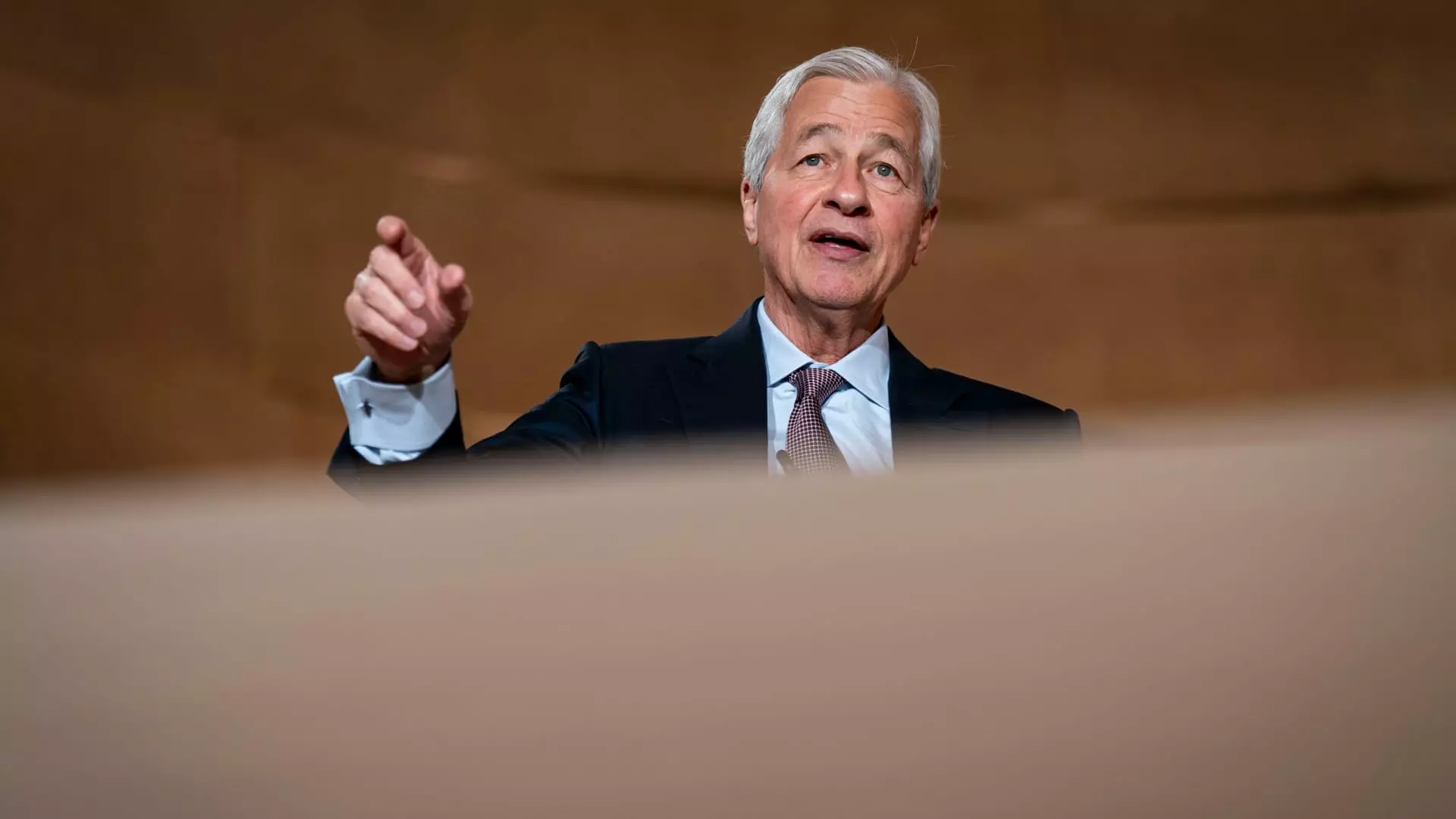In a recent investor meeting, Jamie Dimon, the CEO of JPMorgan Chase, deliberately challenged the prevailing optimism saturating the financial markets. His remarks were not just advisory; they were an urgent call to attention for anyone who dares dismiss the precarious economic conditions we currently face. While many investors breathe a sigh of relief following stock recoveries from dips earlier in the year, Dimon paints a starkly different picture, suggesting that a critical underlying tension could lead the economy into uncharted waters. The sentiment that “everything is fine” has lulled markets into a dangerous complacency where risks are understated or ignored altogether.
Dimon breaks down this facade by pointing to the astounding U.S. deficit, which dwarfs historical levels, suggesting that this burden will hang ominously over the future of economic growth. He asserts that while central banks have managed to maintain an air of stability, their capacity to address these escalating challenges is questionable at best. The seasoned CEO argues that the false sense of security among market players is almost a collective denial of the realities presented by ballooning debt and geopolitical strife.
Inflation and Stagflation: The Twin Threats
Delving deeper into the economic hazards, Dimon warns that inflation could rear its head more ferociously than anticipated. The stock market, buoyed by optimistic earnings estimates, may be fundamentally misjudging the trajectory of corporate earnings. Dimon predicts that within mere months, there will likely be a downturn in expectations, potentially veering towards stagnation accompanied by soaring prices—a scenario known as stagflation. If earnings projections plummet, which they inevitably seem poised to do as companies react to shifting policies and tariffs, stock prices may soon follow the same downward spiral.
A 12% earnings growth forecast now seems alarmingly naïve, and though the stock market may momentarily counteract these fears by bouncing back, Dimon urges that the fundamentals simply do not support such optimism. The possibility of an impending economic downturn is intensified when considering the reaction of corporations currently adopting a “wait-and-see” stance, hesitant to invest as uncertainty rules the economic landscape.
Political Policies and Their Economical Footprint
Dimon’s critique doesn’t just dwell on fiscal matters, but extends into the realm of political strategy, particularly under the Trump administration. The erratic trade policies initiated by President Trump, as Dimon notes, are creating a cocktail of unpredictability that hangs heavily over Wall Street. The turbulence induced by these policies should serve as a warning signal to both investors and policymakers alike: that recklessness in economic maneuvers can have dire consequences—rippling through various industries, hence influencing job creation and consumer spending.
It’s here that the contrast of ideologies surfaces: while left-leaning perspectives may reassess tariffs as appropriate tools to safeguard local industries, Dimon’s analysis emphasizes their role as potential economic saboteurs. The risks of escalating tariffs, which may increase costs, could inadvertently stifle growth, relegating consumers to diminished purchasing power.
The Future Amidst Uncertainty
As discussions regarding leadership transitions at JPMorgan surface, many eyes turn to potential successors groomed under Dimon’s stewardship. Yet, the primary concern is far greater than the fate of JPMorgan; it encompasses the broader economic environment that has left many industries in peril. With investment banking revenues forecasted to decline sharply while trading revenues experience moderate increases, it leaves room for more questions than answers.
Dimon’s steady insistence on transparency about potential economic pitfalls embodies a beacon amid the encroaching fog of uncertainty. Stakeholders must awaken to the harsh truth that ignoring these signals can lead to devastating long-term repercussions. Failure to navigate this financial minefield may yield a wake-up call that many are not yet prepared to handle, as economic realities remain steadfast and unyielding in their approach. The alarming truths articulated by Dimon beckon a dialogue prioritizing foresight over complacency, as the decisions we make today will undoubtedly sculpt the economic landscape of tomorrow.

